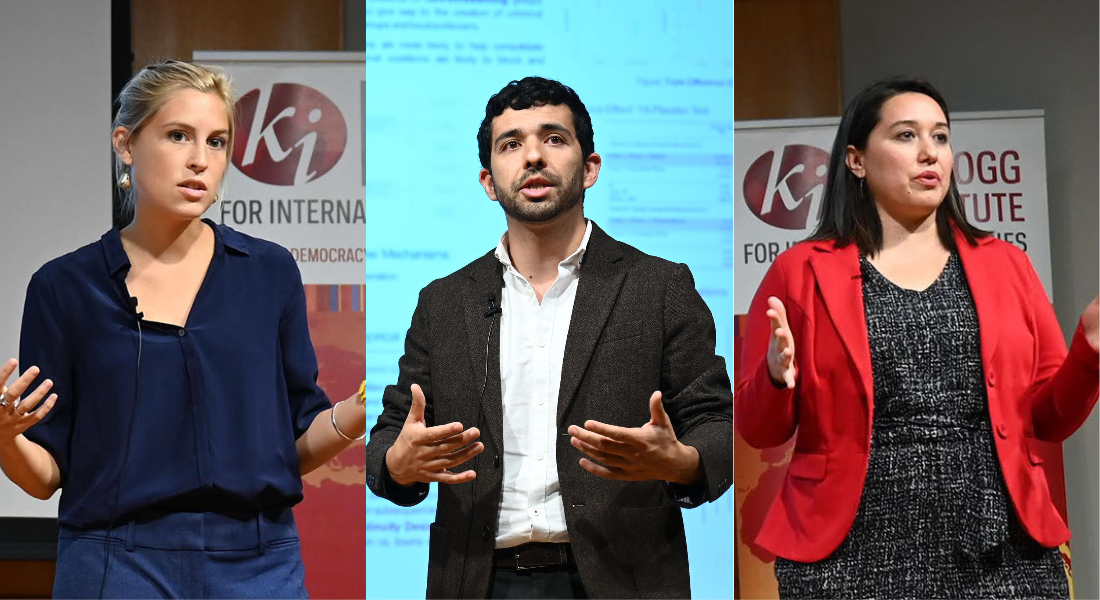
Congratulations to the Kellogg Institute’s three 2019-2020 dissertation year fellows, who recently received their PhDs.
They are:
• Emily de Wet (anthropology), whose dissertation “Oh I Love the Vibe: Complicating Discourses Around Life in Cape Town’s Townships” examines cultural elements and community connections within the South African townships. She argues that much of the existing scholarship on townships focuses on race, class, and violence, while ignoring aspects of everyday life – such as food, clothing styles, and familiarity with one’s neighbors – that make up the social fabric of townships.
Read more about de Wet’s work and listen to her describe her research here.
• Camilo Nieto-Matiz (political science), who studies state-building in violent contexts. His dissertation examines how states increase their capacity in subnational peripheries, poor areas with little state presence, in times of conflict. It also addresses how the presence of violent groups, even in a democracy, can impede the development of a more capable state at the local level.
He described his research, which focuses on his native Colombia, in a Q&A and a video.
Nieto-Matiz was awarded the Institute’s fourth annual Kellogg Institute Award for Outstanding Doctoral Student Contributions and is scheduled to being a two-year postdoctoral fellowship at the Center for Inter-American Policy and Research at Tulane University in the fall.
• Carla Villanueva (history), studies Mexico’s Escuelas Normales Rurales, the state-sponsored rural teacher training colleges known for their left-wing activism. Her dissertation analyzes the role the schools played in Mexico during the 1960s and how their development reflected – and challenged – the country’s increasingly authoritarian political climate during the Cold War.
Read about her research here and listen to her discuss her work here.
Kellogg’s dissertation year fellowships fund advanced University of Notre Dame graduate students in the social sciences, history, theology, and international human rights law. The fellowships are intended for students to do field research and/or complete the writing of their dissertations.
“The dissertation year fellowships provide critical support to students whose work is important in and of itself, but also furthers Kellogg’s mission of producing impactful scholarship related to democracy and human development,” said Kellogg Assistant Director Denise Wright, who oversees the Institute’s graduate programming. “Our dissertation year fellows represent the next generation of scholars, and we are proud of Emily, Camilo, and Carla and their accomplishments.”





